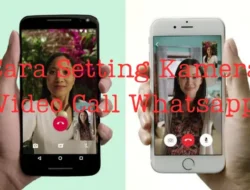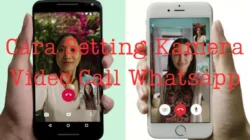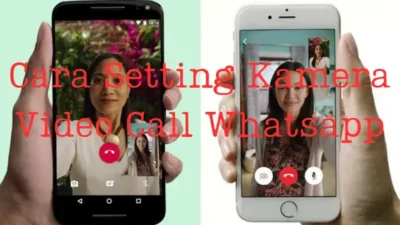Bagi pengguna media sosial whatsapp, ada berita penting nih dari cara setting kamera video call…

Begini Cara Setting Kamera Video Call Whatsapp yang Benar
Bagi pengguna media sosial whatsapp, ada berita penting nih dari cara setting kamera video call…




